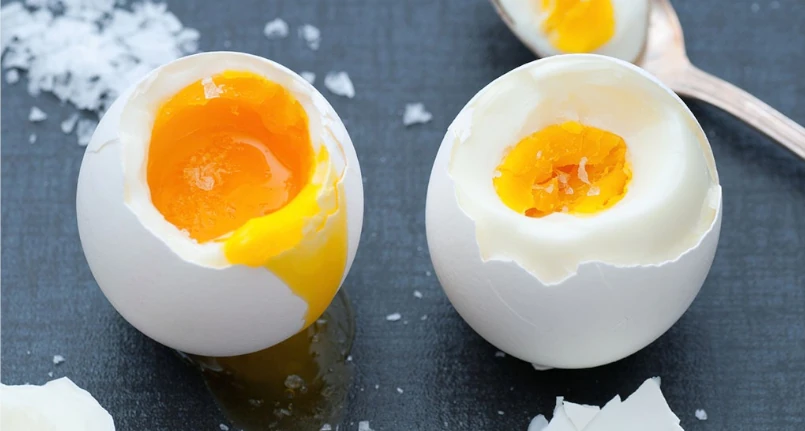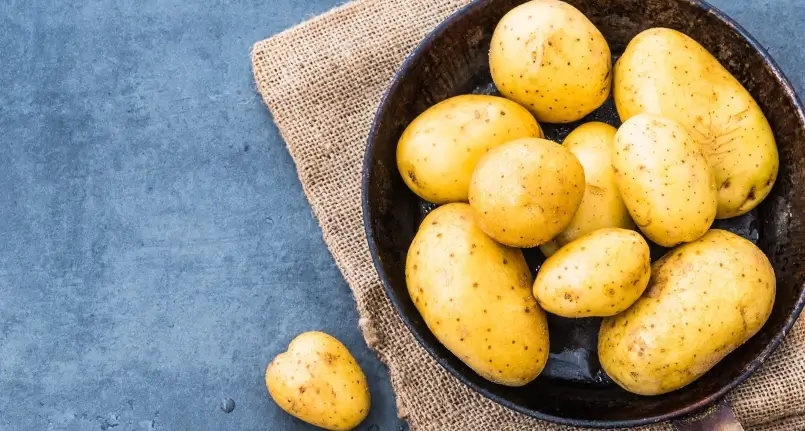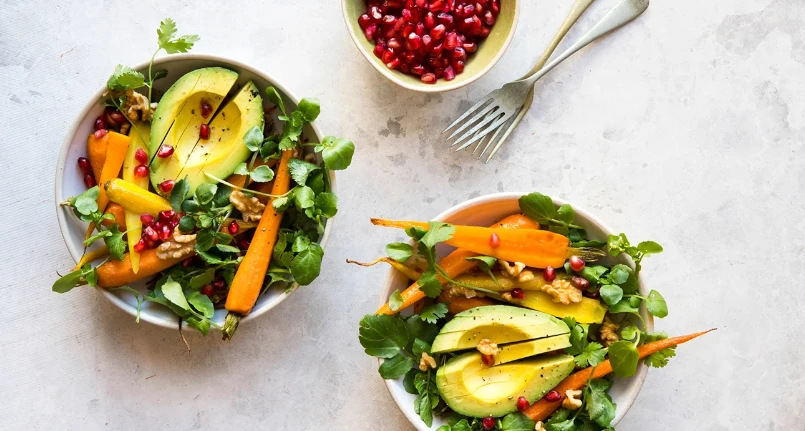Eggs: simple and healthy
Eggs are an inexpensive but incredibly nutritious food.
They contain relatively few calories , but are rich in:
- protein
- vitamins
- minerals
- healthy fats
- various trace elements
That said, how you prepare your eggs can affect their nutrient profile.
Cooking makes some nutrients more digestible
Cooking eggs makes them safer to eat and also makes some of their nutrients easier to digest . For example, egg proteins have been shown to become more digestible when heated . In fact, one study found that the human body could use 91% of the protein in cooked eggs, compared to only 51% in raw eggs.
This change in digestibility is thought to occur because heat causes structural changes in egg proteins. In raw eggs, protein compounds are separated from each other and linked in complex, convoluted structures. When proteins are cooked, the heat breaks down the weak bonds that hold them together. The proteins then form new bonds with other proteins around them. These new bonds in the cooked egg are easier for the body to digest. The protein in raw eggs can also interfere with the availability of the micronutrient biotin. Eggs are a good source of biotin , an important nutrient used in fat and sugar metabolism . It is also known as vitamin B7 or vitamin H.
High temperatures damage nutrients
While cooking eggs makes some nutrients easier to digest, it can harm others. Cooking most foods will result in a reduction in some nutrients, particularly if they are cooked at high temperatures for an extended period of time.
Cooking eggs reduces their vitamin A content by about 17-20% . Cooking can also significantly reduce the number of antioxidants in eggs: Common cooking methods, including microwaving, boiling and frying eggs , reduce the number of some antioxidants by 6-18% .
Overall, shorter cooking times (even at high temperatures) retain more nutrients. When eggs are cooked for 40 minutes they can lose up to 61% of their vitamin D , compared to 18% when fried or boiled for a shorter period of time.
Egg cooking methods
- Hard. Hard-boiled eggs are cooked in their shells in a pot of boiling water for 6 to 10 minutes, depending on how well done you want the yolk to be . The longer you cook them, the harder the yolk will become.
- Shirted . Poached eggs are cooked in slightly cooler water. They are broken into a pot of boiling water at a temperature between 71 and 82°C and cooked for 2.5-3 minutes.
- Fried. Fried eggs are cracked into a hot pan that has a thin layer of oil in it.
- Baked. Baked eggs are cooked in a hot oven in a flat-bottomed dish until ready.
- Scrambled. Scrambled eggs are beaten in a bowl, poured into a hot frying pan and stirred over low heat until solidified.
- Omelette . To make an omelette, eggs are beaten, poured into a hot skillet, and slowly cooked over low heat until firm. Unlike scrambled eggs, an omelet isn’t stirred once it’s in the pan.
- In the microwave. Microwaves can be used to cook eggs in many different ways. It takes much less time to cook eggs in a microwave oven than on a stovetop. However, it’s usually not a good idea to microwave eggs that are still in the shell. This is because pressure can quickly build up inside them and they can explode.
Tips for cooking eggs healthily
1. Choose a low -calorie cooking method
If you’re trying to cut calories, choose poached or boiled eggs.
These cooking methods don’t add extra calories, so the meal will have fewer calories than fried or scrambled eggs or an omelet.
2. Combine them with the vegetables
Eggs go very well with vegetables.
This means that eating eggs is a great opportunity to increase your vegetable intake and add extra fiber and vitamins to your meal.
Some simple ideas include adding vegetables of your choice to an omelette or scrambled eggs.
You can also simply cook the eggs however you like and have the vegetables on the side.
3. Fry them in oil stable at high temperatures
The best oils for high-heat cooking, such as when frying, are those that remain stable at high temperatures and don’t oxidize easily to form harmful free radicals .
Examples of good choices include avocado oil and sunflower oil. If using extra virgin olive oil or coconut oil , it is best to cook at temperatures below 410°F (210°C) and 350°F (177°C), respectively.
4. Choose the most nutritious eggs
Several factors, including the rearing method and diet of the chicken , can affect the nutritional quality of eggs.
In general, pasture-raised and organic eggs are thought to be nutritionally superior to caged and conventionally produced eggs.
5. Don’t overcook them
The longer and hotter you cook eggs, the more nutrients you may lose.
Using a higher heat for longer can also increase the amount of oxidized cholesterol they contain, which is especially true for pan-frying.




